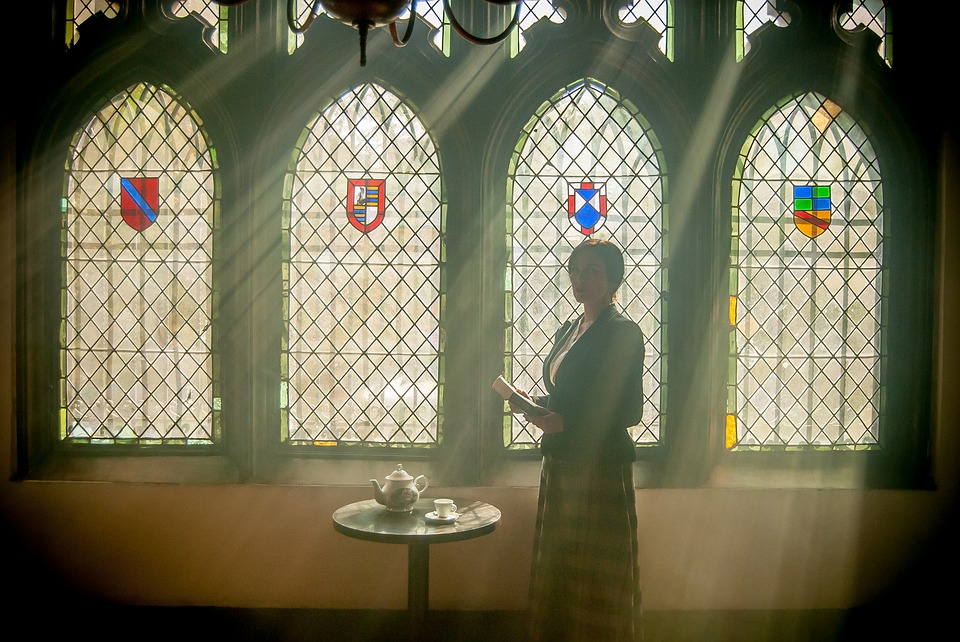
C.S. Lewis and Tastes in Literature
Jessica Mau
In his essay “Different Tastes in Literature,” C.S. Lewis discusses the difference between “tastes” of art and distinguishes between what he considers to be good and bad arts. Lewis shows how people, instead of seeing a bad piece of art for what it is, label it as a certain taste one might have. This does not suffice for Lewis:
The idea that some preferences in art are really better than others cannot be got rid of: and this idea, brought into conflict with the fact that there seem to be no objective tests, engenders the problem…Again and again, one finds a writer assuming at the outset that some people like bad art in just the same way as others like good art. This is what I question. I am going to submit that, in a certain recognizable sense, bad art never succeeds with anyone. (Lewis 119)
Lewis is saying that bad art is not a specific taste one has, or that the specific piece of art is simply bad just to certain individuals. Lewis mentions that these things will by liked in some ways, such as an individual constantly listening and enjoying a hit piece of music. However, once the song fades into obscurity, the person will forget they ever listened to it in the first place. This is the major way Lewis divides good and bad art from each other: good art will be re-read, re-listened to, etc., while bad art will not.
While bad art is enjoyed for a short period of time, Lewis argues that we promptly forget about it. However, Lewis argues that good art is something that we will want to come back to and enjoy again and again. Bad art also does not tend to captivate us as good art does—it does not leave a lasting impression. Lewis argues that such art will have certain qualities that make identifiable as bad.
By contrast, Lewis argues that good art “fills the lives of those who love it” (120). Indeed, the way that Lewis describes it, finding a good story, musical score, or painting does sound like discovering love in an odd and yet familiar way—as if we suddenly discover romantic passion for a familiar friend whose prior acquaintance we have known but taken for granted:
It was more as if a cupboard which one had hitherto valued as a place for hanging coats proved one day, when you opened the door, to lead to the garden of the Hesperides: as if a food one had enjoyed for the taste proved one day to enable you (like dragon’s blood) to understand the speech of birds: as if water, besides quenching your thirst, suddenly became an intoxicant. One discovered that the old, familiar phenomenon ‘Poetry’ could be used, insisted on being used, for a wholly new purpose. Such transitions are simply misrepresented by saying ‘the boy began to like poetry,’ or ‘began to like better poetry.’ What really happens is that something which has lain in the background as one of the minor pleasures of life—not radically different from toffee—leaps forward and envelopes you till you are (in Pepys’s sense) ‘really sick,’ till you tremble and grow hot and cold like a lover. (121-2)
What Lewis says makes a lot of sense when I consider how people around me relate to the popular culture of today. Often I hear my friends listening to certain artists and songs, dancing and laughing to them, but within a couple months I never hear them listen to them again. I have done the same as well; but then there are those great songs that I listen to, again and again over the years, that seem to have no ‘shelf life.’
The same goes for books, of course. There are books which I have read once and never touched again. I go back to my childhood and the books I have read then. There are many which I cannot tell you what they are about, and there are several I only vaguely remember reading. The June B. Jones series was one group of books that I read…although I never re-read any of them, and I have long-forgotten the exact plot or the specific characters (excluding the main protagonist) of these stories.
However, there are many others I have re-read over and over throughout the years and I still think about. Occasionally, when I have the time, I will pick them up and read them again. One such series is the Bionicle series. While the quality of writing in the first set of the series might not be considered high quality, it still managed to inspire something which still lasts within me—adventure, tension, heroism, and a new, unique world to explore. The quality of the writing quickly improved in the later sets, with more complex characters and plots interweaving into a greater, more connected story.
One way I could apply what this essay says is to pay attention to what I am reading and listening to. Not only the quality, but I plan to question if I have the urge to enjoy the story and its characters a second time. I can also apply this to my own writing—do I still want to read my story again after I have finished writing it? Do others I share my work with read it more than once? This can help me determine whether or not what I write is ready to share with another reader.
(1). Lewis, C.S. On Stories and Other Essays on Literature. Ed. Walter Hooper. New York: Harvest Book, Harcourt, Inc. 1982.